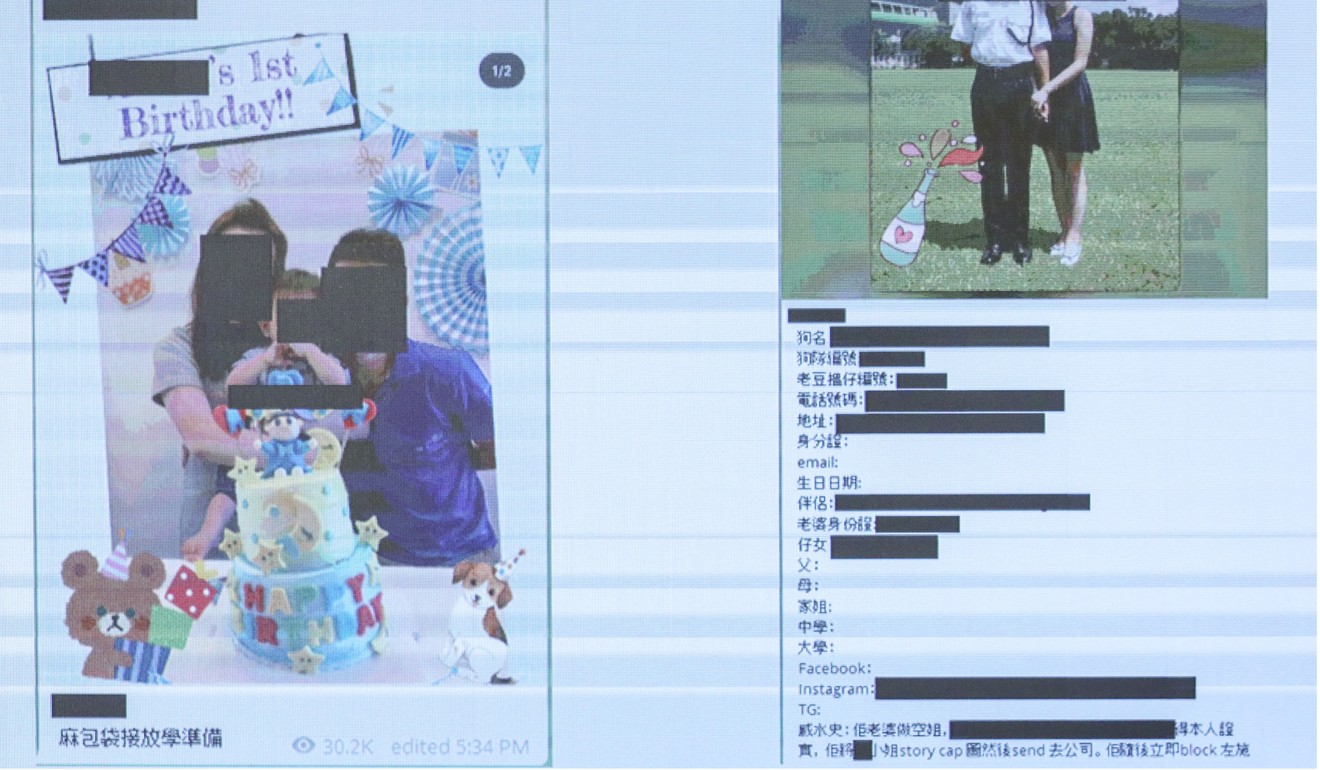
Hong Kong police provide personal alarms to children of officers in response to cyberbullying and threats of attack amid worsening protest violence
- Thousands of the devices have been dished out at various police stations ahead of the new academic year next week
- New mechanism has also been set up where officers can report incidents of school bullying of their children

The 31,000-strong Hong Kong police force has started handing out rape alarms to the children of officers amid online threats including hate speech and calls for attacks against them.
A new mechanism has also been set up where officers can report incidents of school bullying of their children to the force’s staff relations branch, which will refer the cases to the Education Bureau for follow-up action.
Thousands of the devices, which emit a loud siren-like sound when pressed, were given to officers with children under the age of 18 at various police stations starting on Thursday, ahead of the new academic year next week.
One senior officer said issuance of the device was made in response to cyberbullying and online threats against officers’ children.

“The alarm is useful if they are physically attacked because the noise is very loud,” he said.
Police spotted that some internet users had attempted to incite others to ambush and attack the children of officers outside school campuses.
“Pick them up after school” and “take care of them” were phrases people used on an internet forum, according to another veteran officer.
“Online readers were asked to work in a group of six. Two were to act as lookouts while the other four would use a linen bag to cover and then beat their target for several minutes,” he said.
The officer said the devices were a precautionary measure and necessary in the wake of escalating violence by anti-government protesters against police since the demonstrations against the now-shelved extradition bill broke out in early June.
But protesters mocked the measure on online chat groups, saying the device would identify which students were from police families.
Speaking at a regular police briefing on Friday, Chief Inspector Cheung Po-yuet of the force’s family conflict and sexual violence policy unit appealed to parents to keep a close eye on any abnormal behaviour displayed by their children.
“If parents find their children suddenly feeling depressed or are skipping classes, they should get in touch with the force,” she said.

“There are online comments calling officers ‘dogs’ and their children dogs’ sons and daughters. Police absolutely will not tolerate such bullying behaviour and will launch investigations if criminal behaviour is involved.”
Cheung said there were 117 liaison officers in close contact with primary and secondary schools in the city. They were ready to provide schools with support if necessary, she said.
Since the anti-government protests began in June, police had received more than 1,600 complaints from officers and family members after personal information – such as names, home address, pictures, phone numbers and names of school – was posted on the internet.
So far, police have arrested 19 people – 15 men and four women, aged 16 to 40 – in connection with cyberbullying and online threats.
Meanwhile, professionals from eight concern groups announced they were joining hands to provide support for student protesters, including counselling, psychotherapy, legal advice and medical consultations.
“It’s very troublesome. The students’ sleeping standards are not good and some even have nightmares,” said Lau Ka-tung, a member of the Reclaiming Social Work Movement.
“We understand that students’ feelings have reached boiling point, particularly at home. We’ve noticed the relationship between students and their families is worsening. They’re dealing with many more things. Students might experience police brutality, have concerns about their own safety and don’t have their family’s support.”
He said there were more than 100 social workers discussing on messaging app Telegram how they could help students who were boycotting classes next week in a bid to pressure the government to meet protesters’ demands, including the complete withdrawal of the bill and an inquiry into police’s use of force.
The groups printed 3,000 cards carrying hotline numbers for distribution to the students, but they said they were not encouraging them to join the boycott.
The Hong Kong Student Strike Alliance, a platform set up to support the class boycott by secondary school pupils, said on Friday a proposed rally at Tamar Park in Admiralty on Sunday would be cancelled because of safety concerns.
Platform members warned on Thursday they would step up their action by blocking school gates and transport if the government failed to meet their demands by September 13, but a representative of the alliance, surnamed Ho, clarified that the group had not reached a consensus on the move and they did not encourage illegal activities such as blocking roads.
He apologised on behalf of the group for “giving inaccurate information that may affect class boycotts”.